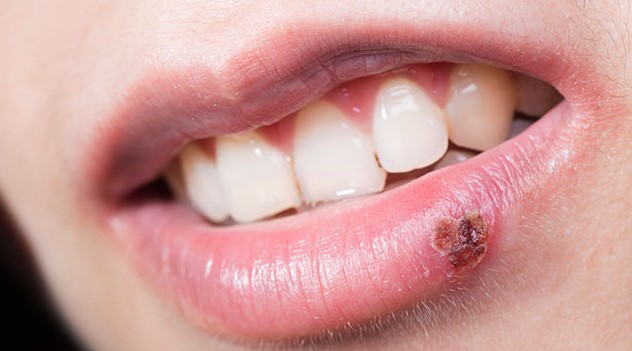Cold Sores Home Remedy: Natural Treatments for Oral Herpes

Cold Sores Home Remedy: Natural Treatments for Oral Herpes is a comprehensive guide that provides information on natural and home-based remedies for managing and treating cold sores, also known as oral herpes. This guide explores various natural treatments, including dietary changes, herbal remedies, and lifestyle modifications, that can help alleviate the symptoms of this common viral infection. It aims to empower individuals to take control of their health by using safe, natural methods to reduce the frequency and severity of cold sore outbreaks.
Effective Cold Sores Home Remedy: Natural Treatments for Oral Herpes
Cold sores, also known as fever blisters, are small, painful, fluid-filled blisters that typically appear on or around the lips. They are caused by the herpes simplex virus type 1 (HSV-1), a highly contagious virus that can be easily transmitted from person to person through close personal contact, such as kissing. While there is currently no cure for HSV-1, there are several natural treatments that can help to alleviate the symptoms of cold sores and speed up the healing process.
One of the most effective natural treatments for cold sores is lysine, an essential amino acid that is found in many foods, including meat, fish, eggs, and dairy products. Lysine has been shown to inhibit the replication of the HSV-1 virus, thereby reducing the severity and duration of cold sore outbreaks. It can be taken as a dietary supplement or applied topically in the form of a cream or ointment.
Another powerful home remedy for cold sores is lemon balm, a herb that is known for its antiviral properties. Studies have found that lemon balm can effectively prevent the HSV-1 virus from penetrating the cells, thus preventing the outbreak of cold sores. It can be applied topically to the affected area or consumed as a tea for best results.
In addition to lysine and lemon balm, there are several other natural treatments that can help to soothe the discomfort and pain associated with cold sores. For instance, applying a cold compress to the affected area can help to reduce inflammation and numb the pain. Similarly, aloe vera gel, which is known for its soothing and healing properties, can be applied to the cold sore to help speed up the healing process.
Moreover, certain lifestyle changes can also help to prevent the outbreak of cold sores. For instance, maintaining a healthy diet that is rich in vitamins and minerals, particularly vitamin C and zinc, can help to boost the immune system and prevent the HSV-1 virus from activating. Similarly, managing stress levels through practices such as yoga and meditation can also help to prevent cold sore outbreaks, as stress is known to trigger the activation of the HSV-1 virus.
While these natural treatments can be effective in managing the symptoms of cold sores, it is important to remember that they are not a cure for the HSV-1 virus. Therefore, it is crucial to practice good hygiene to prevent the spread of the virus to others. This includes avoiding close personal contact with others during an outbreak, not sharing personal items such as lip balm or towels, and washing hands frequently.
In conclusion, while cold sores can be painful and uncomfortable, there are several natural treatments that can help to alleviate the symptoms and speed up the healing process. These include lysine, lemon balm, cold compresses, aloe vera gel, and certain lifestyle changes. However, as these are not a cure for the HSV-1 virus, it is important to practice good hygiene to prevent the spread of the virus to others.In conclusion, natural treatments for oral herpes or cold sores can be effective alternatives to pharmaceutical remedies. These include the use of lysine, lemon balm, peppermint oil, aloe vera, and ice. These remedies can help to reduce the severity and frequency of outbreaks, alleviate pain and discomfort, and speed up the healing process. However, while these natural treatments can provide relief, they are not a cure for the herpes virus. It’s also important to note that results may vary from person to person, and it’s always recommended to consult with a healthcare professional before starting any new treatment regimen.